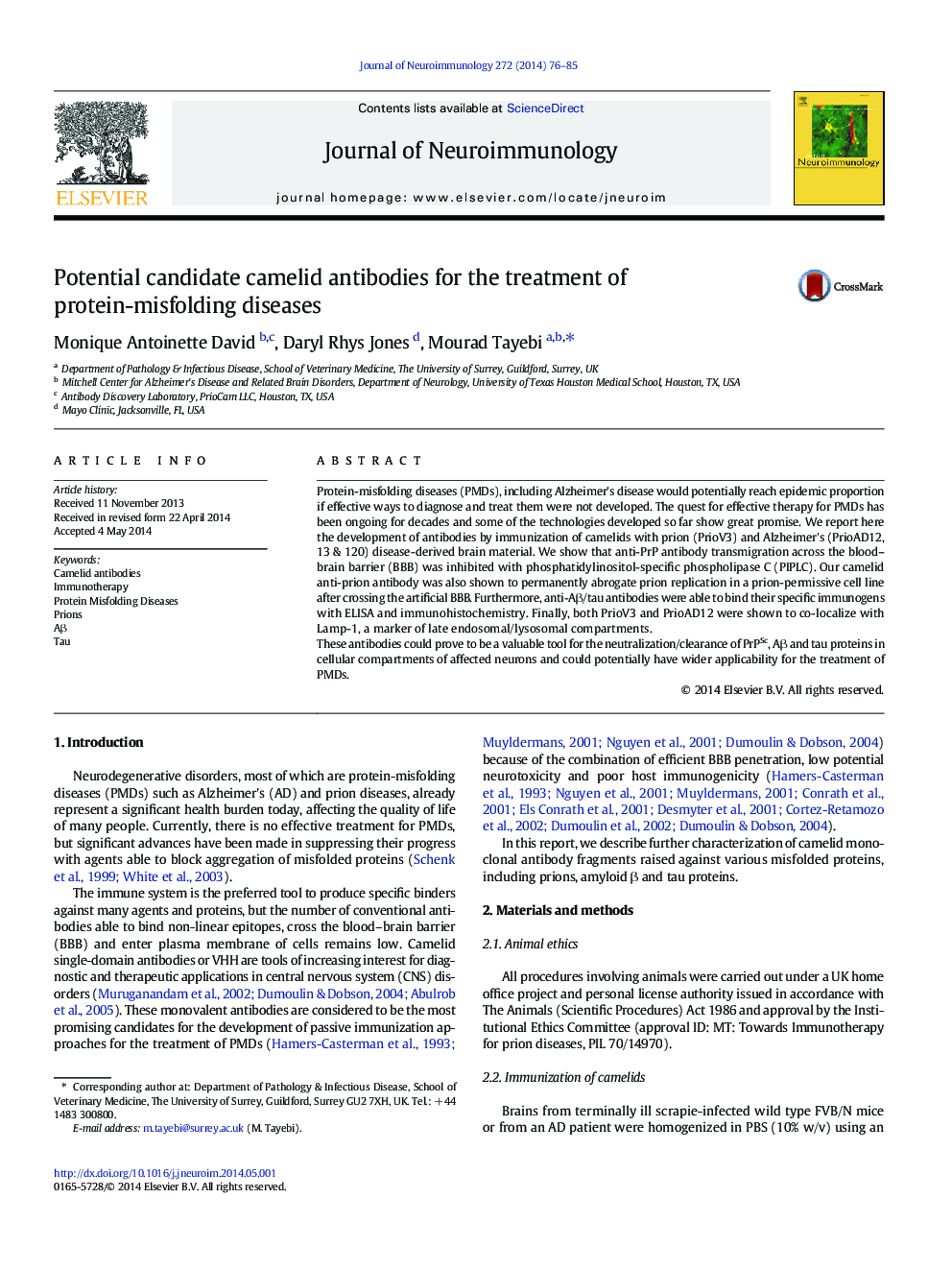| Article ID | Journal | Published Year | Pages | File Type |
|---|---|---|---|---|
| 3064015 | Journal of Neuroimmunology | 2014 | 10 Pages |
•Inhibition of camelid anti-PrP antibody BBB migration with PIPLC•Endosomal localization of prions and Aβ•Antibody transmigration is mediated via clathrin in vitro.•Efficient antibody brain uptake in vivo•Efficient antibody brain parenchymal diffusion in vivo
Protein-misfolding diseases (PMDs), including Alzheimer's disease would potentially reach epidemic proportion if effective ways to diagnose and treat them were not developed. The quest for effective therapy for PMDs has been ongoing for decades and some of the technologies developed so far show great promise. We report here the development of antibodies by immunization of camelids with prion (PrioV3) and Alzheimer's (PrioAD12, 13 & 120) disease-derived brain material. We show that anti-PrP antibody transmigration across the blood–brain barrier (BBB) was inhibited with phosphatidylinositol-specific phospholipase C (PIPLC). Our camelid anti-prion antibody was also shown to permanently abrogate prion replication in a prion-permissive cell line after crossing the artificial BBB. Furthermore, anti-Aβ/tau antibodies were able to bind their specific immunogens with ELISA and immunohistochemistry. Finally, both PrioV3 and PrioAD12 were shown to co-localize with Lamp-1, a marker of late endosomal/lysosomal compartments.These antibodies could prove to be a valuable tool for the neutralization/clearance of PrPSc, Aβ and tau proteins in cellular compartments of affected neurons and could potentially have wider applicability for the treatment of PMDs.
